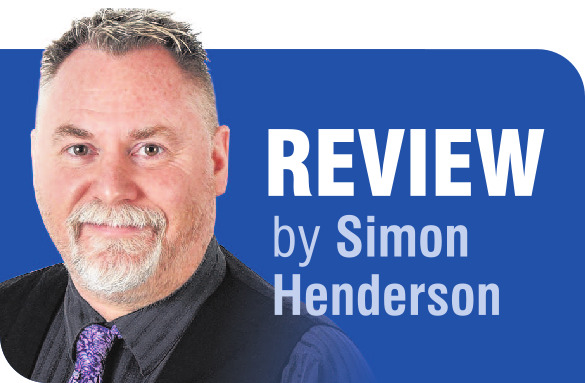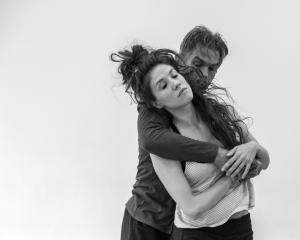
Voices at the End features Michael Houstoun performing the music of John Psathas.
The first piece, Second-Hand Time brings words and music together as text flashes on a projector screen.
Psathas drew inspiration from books by authors Brad Evans, Svetlanda Alexievich, Noam Chomsky, and Henry A. Giroux as well as the documentaries of Adam Curtis.
These evocative words, debating issues such as structured reality, revisionist history, and who controlled the internet, were matched with a dark and intense composition.
Atmospheric sounds and percussion by producers Emanuel Psathas and Immanuel Dannenbring provided another layer of emotive emphasis.
Houstoun tackled the composition with uncanny accuracy, so well-timed to the text on screen it felt he was summoning words by the power of his hands alone.
The second piece, Voices at the End was inspired by director, author and environmentalist Joanna Macy’s film Planetary.
This saw the projector screen came alive with an array of images from peaceful forests to marching armies and global unrest.
The composition was divided into passages including Business as Usual, The Great Unravelling and The Great Turning, taking us on a journey from peace to destruction to hope for the future. Again Houstoun was masterfully in sync with each change of scene, utterly in command of his instrument, filling the auditorium with a wall of sound.
Additional music and voices on the video soundtrack included acoustic guitar by Joe Callwood, shakuhachi played by Renkai Hashimoto, a reading from the Mahabharata spoken by Sotigui Kouyate, and the voice of Briar Prastiti.
Although there were some striking images, I felt the video montage suffered from feeling a little too much like generic stock footage.
However, the music was the real star, the compositions of Psathas having a grandeur and energy that was brought to life by Houstoun’s peerless playing.













